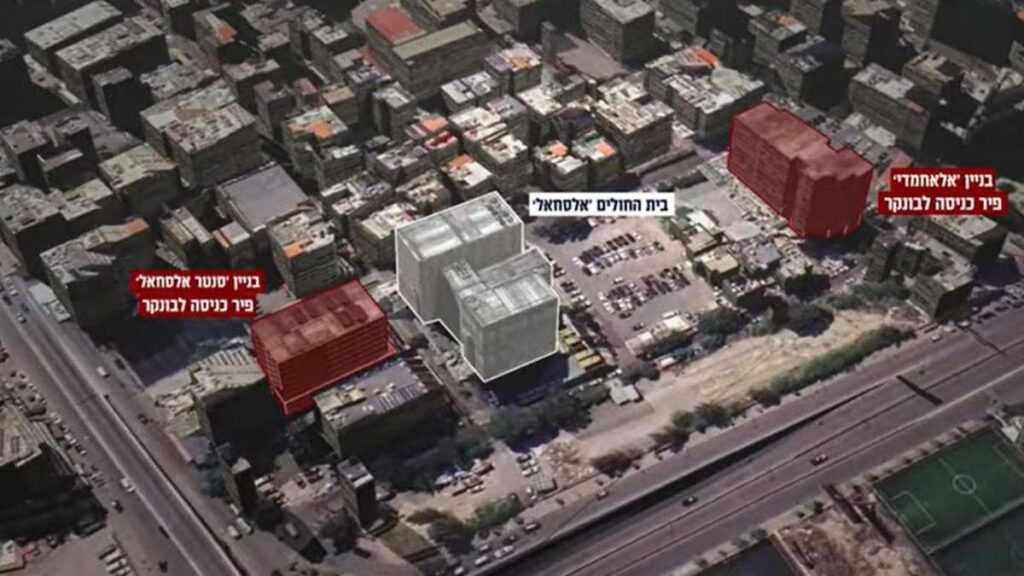Hezbollah, the Iran-backed militant group, has reportedly concealed over $500 million in cash and gold in a secret bunker located under the al-Sahel hospital in Beirut. This information was disclosed by Rear Adm. Daniel Hagari, spokesperson for the Israel Defense Forces (IDF), who indicated that the Israeli Air Force is monitoring the site, though there are currently no plans to target it. This revelation comes amid heightened tensions in the region, following a series of Hezbollah attacks on northern Israel that have driven many residents to evacuate. The IDF has intensified its operations against Hezbollah in response to these strikes, aiming to counter the group’s growing influence and military capabilities.
The clandestine bunker is described as a strategic asset, deliberately situated beneath the hospital, and is reportedly filled with beds, rooms for extended stays, and facilities for operational planning. This bunker is said to be connected to the late Hezbollah leader Hassan Nasrallah and is viewed as a significant resource for the group. According to Hagari, the funds hidden in the bunker could have been redirected toward the rehabilitation of Lebanon’s struggling economy instead of being funneled into Hezbollah’s military operations. The IDF has utilized this information to call upon Lebanese officials to rein in Hezbollah’s activities and ensure that the funds are not used for further acts of terror against Israel.
The Israeli military has also released a detailed 3-D presentation illustrating the storage location of these funds, emphasizing the strategic implications of Hezbollah’s financial operations. Hagari has reached out to the Lebanese government and international organizations, urging them to take action against Hezbollah’s misuse of financial resources to prevent further escalations of violence in the region. The ongoing situation marks a critical juncture as both Israel and Hezbollah prepare for potential future confrontations, with apprehension growing over the operational capabilities of the terror group.
Fadi Alameh, the director of the al-Sahel hospital, has reported that the facility is in the process of being evacuated. He stated that the hospital is situated near facilities related to Hezbollah, suggesting that the IDF is likely to target these locations in the near future. This development is consistent with the IDF’s accusation that Hezbollah, similar to Hamas, persists in employing civilian infrastructure — such as hospitals and schools — to shelter its operations and fighters, complicating the military landscape and increasing the risks for civilians in the area.
Hagari further elaborated on the financial network that supports Hezbollah, specifically detailing how Iranian funds are funneled to the group. He mentioned that Hezbollah’s financial arm, Al-Qard Al-Hasan, provides critical financial services to Lebanese citizens while simultaneously facilitating salary payments for its operatives. The IDF noted that Iran’s Quds Force plays a significant role in transferring money to Hezbollah from Iranian oil sales in Syria and that cash and gold are also sent via air to the Iranian embassy in Beirut, further solidifying Hezbollah’s financial foundations.
In summary, the exposure of Hezbollah’s significant financial resources concealed beneath a civilian hospital raises critical concerns regarding the group’s operational capabilities and the implications for regional security. With the IDF actively monitoring the bunker and preparing for potential military responses, the situation remains precarious. The ongoing interplay of military actions, financial networks, and the role of external state actors like Iran shape a complex security environment that will likely continue to evolve in the coming months. As Israel calls upon Lebanon and the international community to take a stand against Hezbollah’s terrorist activities, the situation underscores the urgent need for effective measures to counter further escalation and promote stability in the region.

